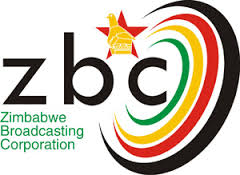Government drought mitigation strategy to benefit 2 000 families
Story by Abigirl Tembo
RELIEF is on the horizon for nearly 2 000 individuals across 32 wards in Bikita District, as government launches its food deficit mitigation strategy.
The initiative, aimed at cushioning vulnerable families from hunger, will see almost 2 000 individuals receiving grain.
The initiative builds upon data from the 2023 Zimbabwe Livelihoods Assessment Programme, which identified over 60 000 food-insecure individuals across Bikita district.
With government funding, this programme delivers much-needed assistance to those most affected by the El-Nino-induced drought.
“We are grateful to the government for this intervention because we know that we will be food sufficient till the next
harvest,” said one of the beneficiaries.
Another added, “Because of climate change we rarely get good harvests so when the government pitches in to cushion us it shows that they care about us and our well-being.”
“The process is being done in a fair and transparent manner there is no favouritism or segregation. This is my first time registering for this programme,” another added.
The Food and Nutrition Council, in collaboration with various departments and ministries, is already conducting the 2024 Livelihoods Assessment Programme that will inform future policies and strategies specifically designed to address food insecurity throughout the 2024-2025 period.
“We are in Bikita district at a food deficit mitigation distribution point where the Department of Social Services is registering households that will benefit from the government-supported intervention. This is an intervention that was informed by findings of the Zim Livelihoods Assessment 2023 report which indicated that quite a substantial number of households in Bikita district are food insecure so the government has come in with food distribution and will distribute cereal depending on the family size.
“We are working with various ministries including the Ministry of Health and Child Care responsible for screening for malnutrition at household level. All household members will benefit from this intervention including the Under 5s who would have been found to be malnourished. We also have partners that are coming in in urban areas, they are coming in with cash transfer that they are also going to support urban families.
“Next week the Ministry of Social Services will also register the urban areas that were found to be food insecure through the ZIMLAC assessment,” said the Deputy Director of Multi Sectoral Coordination – Food and Nutrition Council, Ms Miriam Banda.
The Zimbabwe Livelihoods Assessment Programme has proven instrumental in informing the formulation of food and nutrition policies for years.
By identifying vulnerable communities and understanding their needs, the government can tailor interventions to create a more secure and resilient future for all Zimbabweans.





